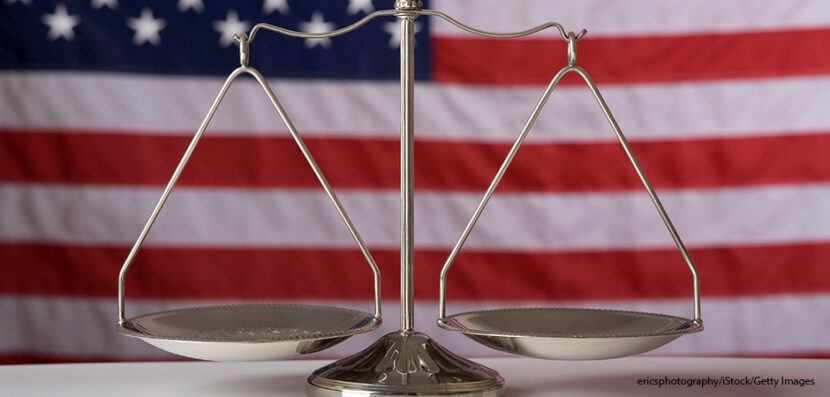- Current Events Nebraska Rejects Winner-Take-All Proposal
- Citizenship Voting Under Age 18
- Citizenship Citizenship in Action
- Democratic Party Biden’s and Trump’s Recent Primary Results
- Elections Trump and Biden Win South Carolina and Michigan Primaries
- Democratic Party Trump and Biden Win Big in Early February Contests

Manafort and Cohen Guilty
Last week, in what many have described as the darkest day of Trump’s presidency, two key men close to the president learned that they will both be serving prison time. Within hours of each other, Michael Cohen, Trump’s former personal lawyer, pled guilty to charges of campaign finance crimes, while Paul Manafort, Trump’s former campaign chairman, was convicted of criminal financial fraud. Both crimes have damaging implications for the president. Here, Election Central takes a closer look.
Manafort Convicted
Paul Manafort served as Trump’s campaign chairman during his 2016 race for the presidency. On August 21, he was found guilty on five counts of tax fraud, two counts of bank fraud, and one count of failing to disclose a foreign bank account. The jury was unable to reach a verdict on ten additional counts, so the judge ruled them a mistrial.
Before he became Trump’s campaign chairman, Manafort helped Viktor F. Yanukovych, a pro-Russian politician, become president of Ukraine in 2010. This earned him over $60 million, which he then went on to conceal in 31 secret bank accounts. The scandal was uncovered this year by the independent investigation into Russian tampering in the 2016 election that has been led by Robert Mueller.
Cohen Pleads Guilty
On the same day, Trump’s former personal attorney, Michael D. Cohen, pleaded guilty to violating federal campaign finance law, as well as to several counts of tax evasion and one count of bank fraud. All of these charges stem from the fact that Cohen admitted to making payments to two women during the 2016 presidential campaign, to keep them from going public about having an affair with then-candidate Trump.
Things looked even worse for Trump when Cohen’s lawyers said that Cohen had information that would be useful to Robert Mueller’s investigation and that Cohen would be willing to share it in exchange for a lesser sentence. (This is called a plea bargain.)
Trump Responds
The president immediately lashed out against Cohen, denouncing him as a person and a lawyer for agreeing to a plea bargain. The president then said that the campaign finance charges Cohen faced were minor anyway. Trump also spoke out strongly against Attorney General Jeff Sessions.
Trump has been angry with Sessions for some time because Sessions recused himself from the Russia investigation. Trump believes that Sessions should be protecting him by working to end the investigation, but Sessions has refused. The attorney general said that he won’t allow the investigation to be affected by politics. This has led many to wonder if Trump may fire Attorney General Sessions–though at the moment there is no indication that this will happen.
At the same time, Trump praised Manafort for refusing to cooperate with special counsel, unlike Cohen. The president also emphasized that the charges against Manafort are unfortunate, but that they don’t have anything to do with Trump.
What’s Next?
Paul Manafort’s legal battles have just begun. He will face a second criminal trial next month in Washington, D.C. Manafort is accused of seven other charges, including money laundering and obstruction of justice.
Michael Cohen will be sentenced on December 12. He would have faced up to 65 years in prison for his crimes, but because of his plea agreement, that will likely be reduced to anywhere between 46 and 63 months. Some political experts speculate that the president may attempt to pardon Cohen, to take away the need for him to carry out his part of the plea bargain.


